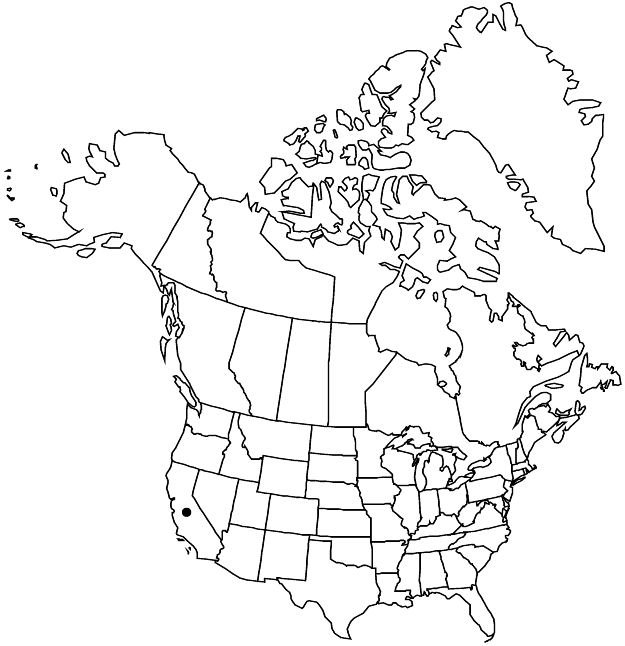Difference between revisions of "Ceanothus divergens"
Proc. Davenport Acad. Nat. Sci. 5: 173. 1889.
FNA>Volume Importer |
imported>Volume Importer |
||
| Line 54: | Line 54: | ||
|publication year=1889 | |publication year=1889 | ||
|special status=Endemic;Conservation concern | |special status=Endemic;Conservation concern | ||
| − | |source xml=https:// | + | |source xml=https://bibilujan@bitbucket.org/aafc-mbb/fna-data-curation.git/src/bb6b7e3a7de7d3b7888a1ad48c7fd8f5c722d8d6/coarse_grained_fna_xml/V12/V12_1099.xml |
|genus=Ceanothus | |genus=Ceanothus | ||
|subgenus=Ceanothus subg. Cerastes | |subgenus=Ceanothus subg. Cerastes | ||
Revision as of 20:07, 27 May 2020
Shrubs, 0.5–1.5 m, sometimes moundlike. Stems erect to ascending, not rooting at nodes; branchlets brown to grayish brown, sometimes glaucous, ± flexible, glabrous or sparsely puberulent. Leaves not fascicled, spreading; petiole 0–2 mm; blade flat to ± cupped or weakly folded lengthwise, elliptic to ± oblong or obovate, 10–20 × 5–12 mm, base obtuse to cuneate, margins thick or slightly revolute, slightly wavy, spinose-dentate, teeth 5–9(–11), apex sharply acute or retuse with an apical tooth, abaxial surface grayish green, veins strigillose, adaxial surface green, glabrous. Inflorescences axillary, 1.2–2.5 cm. Flowers: sepals and petals deep blue to purple; nectary dark blue or purple. Capsules 5–6 mm wide, lobed; valves smooth, crested, horns subapical, prominent, erect, intermediate ridges weakly developed. 2n = 24.
Phenology: Flowering Feb–Apr.
Habitat: Rocky soils apparently derived from serpentine or volcanic substrates, chaparral, oak and pine woodlands.
Elevation: 100–1000 m.
Discussion
Ceanothus divergens is restricted to a few localities in Napa and Sonoma counties.
Selected References
None.
